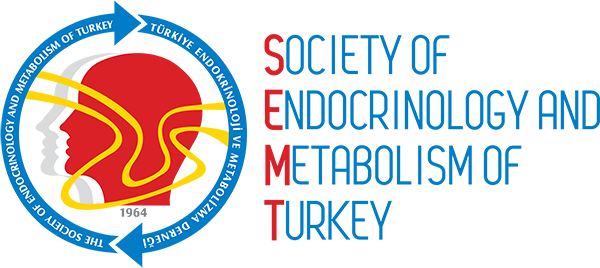In patients with elevated thyroid-stimulating hormone levels but clinically euthyroid, non-thyroid causes of thyroid-stimulating hormone elevation should be considered. A careful approach is required when making a treatment decision for these patients because there are many different conditions, including macro-thyroid-stimulating hormone, that can increase thyroid-stimulating hormone levels. We present 2 patients, a 38-year-old man and an 87-year-old woman. Both of them applied to the endocrinology outpatient clinic because of their high thyroid-stimulating hormone levels. Both patients were using levothyroxine treatment at the time of admission. While thyroid- stimulating hormone levels were high in both patients under levothyroxine treatment, free thyroxine and free tri-iodothyronine levels were within the normal range. Both were clinically euthyroid. When levothyroxine doses were increased in both patients due to high thyroid-stimulating hormone levels, symptoms of thyrotoxicosis developed and free thyroxine levels increased, but thyroid-stimulating hormone levels were still high. No pathological physical examination findings were detected. No discrepancy was found in the detailed query in terms of treatment compliance. There was no drug use or acute stress situations. Thyroid hormone resistance and heterophile antibody interference were excluded. The thyroid-stimulating hormone level was measured again with polyethylene glycol precipitation method in terms of immunoglobulin and thyroid-stimulating hormone complex mac- romolecule (macro-thyroid-stimulating hormone). Polyethylene glycol -precipitated thyroid-stimu- lating hormone levels were found to be 0.16 and 0.128 μIU/mL (0.27-4.2), respectively. Macro-thyr oid-stimulating hormone is a macromolecule formed as a result of the complex binding of thyroid- stimulating hormone with immunoglobulins. Macro-thyroid-stimulating hormone is considered bio- logically inactive. These patients are clinically euthyroid. False-elevated thyroid-stimulating hormone may be detected in patients harboring macro-thyroid-stimulating hormone. Misdiagnosing these patients may result in unnecessary treatment.
Cite this article as: Şah Ünal FT, Güllü S. Macro -thyroid-stimulating hormone is a rare cause of elevated thyroid-stimulating hormone levels: two cases and review of the literature. Endocrinol Res Pract. 2023;27(3):173-176.



.png)
.png)